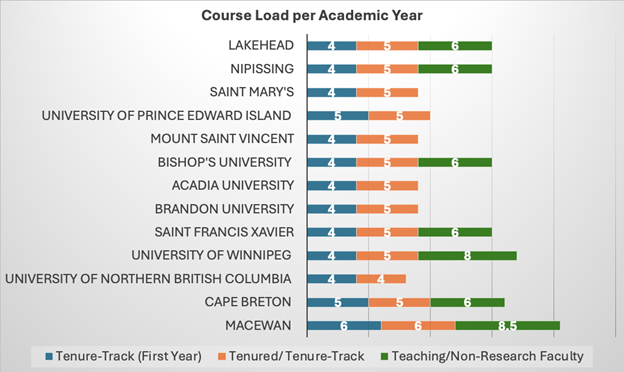Bargaining Bulletin #4

GMUFA’s negotiating team (FANC) has had a busy 6 weeks at the table, and an update is overdue. The rhythm of bargaining can be unpredictable, and progresses in fits and starts. Following the winter break, January sessions were slow and discouraging: the Board’s team expressed an interest in broadening definitions of scholarly activity in Article 11, and in making the role of Department Chair more attractive (Article 13), yet it refused to engage with any of FANC’s substantive proposals on these issues. On Article 13, the Board’s counterproposal actually worsened the already unappealing terms of the Chair role, and FANC’s proposed changes to Article 33 (Sessional teaching) were summarily dismissed without discussion at the table, in a way many members experienced as disrespectful. Often, the Board’s team appeared to display little urgency and interest in moving towards a draft agreement that our members could support.
The Board’s team also expressed an interest in revising Article 12 on workload. This, of course, is an article of significant interest to GMUFA members, as the last several years have witnessed significant workload creep. From much larger class sizes to burgeoning ADR accommodation demands, from growing pastoral care for students in crisis to the burdensome transition from Blackboard to mêskanâs, and from the challenges to Academic Integrity posed by AI to endless, repetitive, and time-consuming online training modules, faculty workload has increased significantly without any corresponding compensation. As MacEwan seeks to achieve its ambitious 2030 growth plans, faculty are reporting serious burn out. This is no surprise, as the courseload for teaching faculty at MacEwan is significantly higher than at peer institutions, as the chart shows.
One potential solution, at least for some teaching faculty, is a transition to a 5-course (235 IH) load for TRS members. On this item, the university’s administration has set expectations high: while the Provost has expressed caution about “bargaining away from the table,” he has made numerous visits over the past two years to faculty councils that leave members hopeful of a pathway to a 5-course load. When the Board’s team tabled language on Article 12, however, it was disappointing. Though the Board’s proposal did include limited gains in providing a more stable and predictable system of course release on a 2-year cycle (thus adhering to a key FANC demand), it also introduced provisions empowering Deans to move faculty normally teaching 6 courses (280 IH) to either 7 or 8 courses in a way that appeared to FANC to be punitive. It further removed popular provisions in Article 12 like the possibility to average courseload over 3 years, and it removed the Workload Review Panel and any mechanism for appeal apart from petitioning the Dean on an individual basis to reconsider. These appeared to be serious setbacks that did not align with GMUFA interests. And crucially, the Board’s team did not commit in any formal way to increasing the number of course releases available to members.
As we all know, the 2020-24 Collective agreement introduced the new course release provision, which the Board’s team portrayed as a step toward a more standardized 5-course load, but the Provost’s office then declined to fund any releases, leaving Deans to scramble to piece together a small number of releases using loose funds according to a chaotic, ad hoc process that lacked transparency or predictability. Given this recent experience, the Board’s invocation to trust their commitment to a pathway to 5 does not seem like a reasonable basis on which to ratify a new agreement: as the saying goes, “fool me once, shame on you, fool me twice, shame on me!” Furthermore, the Board’s proposals in Article 12 did not address workload considerations for librarians, counsellors, sessional instructors, TS9s, PRF faculty without rank, and other faculty types. As a result, Article 12—as well as other stalled articles (2, 11, 13, 14, 26, 27, 33) appeared headed toward mediation.
Mid-February, however, witnessed a new flurry of activity, as the Board’s team changed tactics. From the slow pace of the previous months, the Board suddenly indicated a new interest in expediting negotiations and concluding bargaining by the end of March. It is likely that the Provincial Government, which exercises a unique and unprecedented degree of interference in public sector bargaining in the Province of Alberta, was responsible. With economic uncertainty and “storm clouds on the horizon,” the Province, it seems, would like to conclude public-sector bargaining sooner rather than later. The Board’s team therefore indicated an interest in structuring a final financial settlement based on the recent ratification at SAIT of a 12% cost of living adjustment over 4 years (or 3% a year), in exchange for delaying any language changes in the collective agreement to the next round of bargaining in 2028. The FANC team is certainly interested in reaching a fair settlement in a timely manner, but following member feedback, it was clear that the proposed financial terms were insufficient without some changes in workload and other matters, especially because a 12% salary adjustment, while better than the Board’s original proposal of 7.5%, does not compensate for the 17.4% inflation we have experienced over the past 4 years.
Following a rapid series of “without prejudice” conversations, the Board’s team has agreed to consider a list of key language changes that FANC considers essential to moving toward an expedited agreement with a 12% salary adjustment. In compiling an abridged list of preconditions for an expedited agreement, FANC carefully reviewed responses from GMUFA members, other collective agreements in the province, and Strategic Vision 2030 goals, while considering the Board team’s willingness to engage (or not engage) in specific interests at the table. Although this set of proposals does not encompass all interests with which FANC headed into bargaining, the team believes they are fair and necessary to secure a settlement that will be of immediate benefit to members of all appointment types.